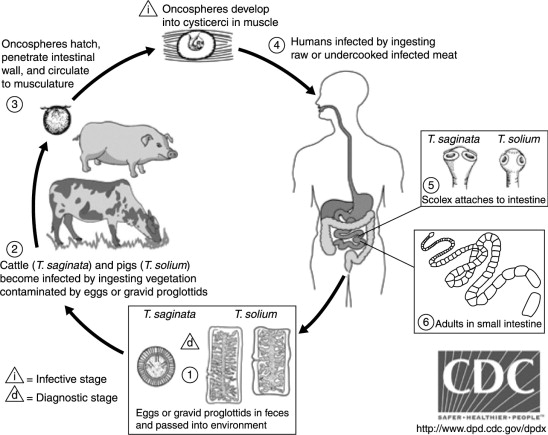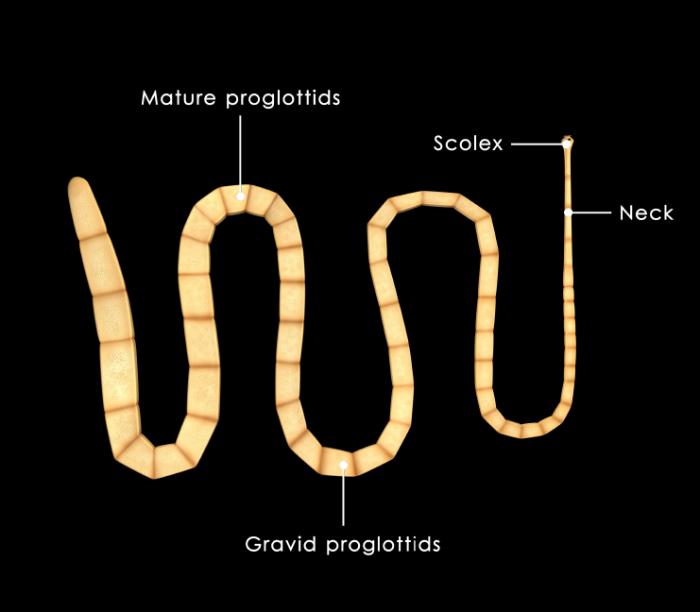
To determine if you are infected with taeniasis, you will need to know what organism is responsible for the disease. In the case of a Brazilian woman, her taeniasis was likely caused by eating pork and raw pork. Her risk was increased by endemic areas in China, Latin America, and Southeast Asia. When the worm infects an organ, it will produce a cyst which will crowd out other organs and decrease the blood supply. Once infected, the larvae will move to other organs, forming additional cysts.
This disease is usually asymptomatic, with the most common symptom being abdominal pain and diarrhea. It is rare to experience neuropsychiatric symptoms, but patients may experience general malaise and diarrhea. In pigs, adults of the genus Taenia saginata are more likely to infect a pig, whereas T solium may cause cysticercosis in humans.
The diagnosis of taeniasis is based on fecal parasites in the affected area. It is not possible to diagnose the disease during the first three months of infection, but it is possible to perform a blood test and confirm the diagnosis. If the infection is a result of self-infection, it is not treatable with oral medications. If it spreads to the eye or brain, surgery is necessary to reduce swelling.
In Tak Province, Thailand, the disease was confirmed in 3.3% of refugees. Several months later, a Thai study group visited the area and diagnosed three more cases. Interestingly, none of them had gone to Bangkok before treatment. The remaining four cases had gone to Bangkok and were successfully treated with Gastrografin, a drug containing diatrizoate meglumine. Thankfully, the patient recovered within one month.
Infection with taeniasis can lead to serious complications. The infection may be endemic or non-endemic. Infected areas usually experience severe neurological problems. In some countries, the symptoms are epilepsy. People in these areas should consult a doctor before taking antiparasitic medications. If you have a higher risk of taeniasis, you should consult a specialist to determine whether it is a problem.
In Japan, a 31-year-old man with a subcutaneous nodule on his neck reported symptoms in December 2009. By May 2010, the number had increased to seven. The patient had brain CT and magnetic resonance imaging (MRI) scans, and his serological tests were positive. He had tapeworm proglottids expelled in stools. The tapeworms were identified by multiplex PCR, and the patient received anti-helminthic therapy.

The infection of the brain by adult tapeworms is the most severe form of taeniasis. In endemic areas, the cysticercosis is caused by the worms in the central nervous system. In a human, the cysticercosis is the larval stage of T. Despite antiparasitic drugs, the disease persists in the majority of populations.
The parasitic infection T. solium causes taeniasis in humans. The infection is spread in the bloodstream by tapworms. In Thailand, taeniasis is a common medical condition and can be fatal if left untreated. The disease is a major cause of death for taeniasis. It is an important public health issue and the disease can be fatal if not treated properly.
A 31-year-old Japanese man with taeniasis began to notice a small subcutaneous nodule in his neck in December 2009. The number of nodules increased and he was hospitalized. In May 2010, he had multiple cystic masses in his brain. He had strong positive serological tests, but the symptoms were mostly in the perianal region. The presence of eggs and segments of worms in the feces may also indicate teniasis.
The incidence of taeniasis in Thailand is high. The greatest risk is acquired through infected pork and infected poultry. The disease can also be transmitted through a woman’s breast milk. Although there is no specific treatment, taeniasis is a serious and life-threatening condition. The site Produk kesehatan Indonesia states that the symptoms of taeniasis are similar to those associated with cysticercosis, but the underlying cause of this condition is unknown.
There are no known cures for taeniasis, but the condition may be caused by other parasitic organisms. A patient with taeniasis has a high chance of contracting the infection by eating raw or undercooked beef. However, it is possible to prevent the spread of taeniasis in Thailand by eating raw or undercooked beef. But you can completely avoid symptoms by taking precautions.